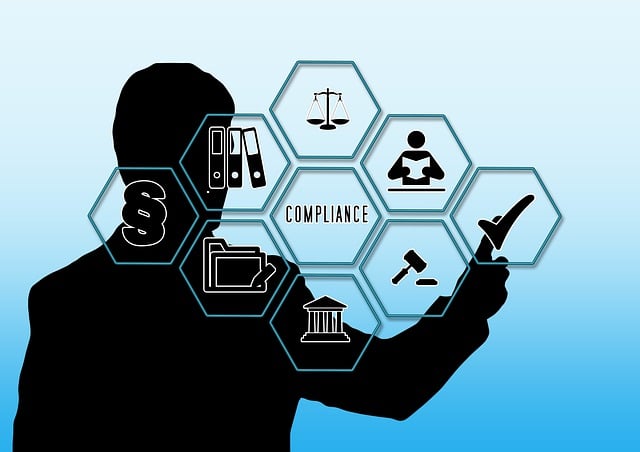Child welfare legal services are crucial for protecting at-risk and abused children, offering a range of legal strategies in collaboration with various agencies. Experienced professionals navigate complex laws, advocate for children's rights, and provide guidance to families. They ensure stability, healing, and positive outcomes by fostering connections to family when possible. These services handle intricate regulations, manage casework, and prioritize the best interests of minors through effective communication and updates on legislative changes. With dedicated support, families can overcome challenges, creating safer environments for vulnerable children. The evolving field integrates technology while addressing complex dynamics like substance abuse and cultural barriers to ensure optimal child welfare legal service outcomes.
“Child welfare legal services play a pivotal role in safeguarding vulnerable children and supporting families facing challenging circumstances. This comprehensive article delves into the intricate world of child protective services, highlighting the expertise required to navigate complex legal matters.
We explore the critical role of experienced professionals, their impact on positive outcomes, and the challenges they face. From understanding the overview of child welfare laws to sharing inspiring success stories, this piece offers insights into the future trends and ongoing efforts to enhance protection for children in need.”
- Understanding Child Welfare Legal Services: An Overview
- The Role of Experienced Professionals in Protection
- Navigating Complex Casework and Legal Procedures
- Impact on Children and Families: Stories of Success
- Future Trends and Challenges in the Field
Understanding Child Welfare Legal Services: An Overview

Child welfare legal services play a pivotal role in ensuring the safety and well-being of children who are at risk or have been abused. These services encompass a range of legal interventions designed to protect vulnerable minors, intervene in cases of neglect or abuse, and guide families towards positive outcomes. The primary focus is on promoting stability, healing, and growth for children while also supporting their connection to family when possible.
Experienced professionals within this field navigate complex laws and regulations to advocate for children’s rights. They work collaboratively with various agencies, including social services, law enforcement, and courts, to develop comprehensive plans that meet the unique needs of each child and family. By providing legal representation, guidance, and education, these services empower families to understand their rights, make informed decisions, and access available resources effectively.
The Role of Experienced Professionals in Protection

Experienced professionals play a pivotal role in safeguarding children involved in legal matters related to child protective services. Their expertise is invaluable when navigating complex legal landscapes, ensuring that the best interests of the child are at the forefront of every decision. With a deep understanding of child welfare laws and regulations, these specialists can provide crucial guidance throughout the entire process.
They possess the knowledge to interpret legal complexities, helping all parties involved—from foster parents to social workers—to make informed choices. Their presence also offers emotional support to vulnerable children, fostering an environment where their voices are heard and their needs are addressed. This specialized assistance is essential in achieving positive outcomes, promoting stability, and ultimately protecting the rights and well-being of children within the child welfare legal services system.
Navigating Complex Casework and Legal Procedures

Navigating complex casework and legal procedures is a critical aspect of providing effective child welfare legal services. Cases involving minors often involve delicate situations, intricate regulations, and diverse stakeholders, from parents and guardians to social workers and judges. Legal professionals must possess the expertise to interpret complex laws and policies while ensuring the best interests of the child are paramount.
They need to be adept at managing multiple tasks, from gathering and analyzing evidence to preparing legal documents and representing clients in court. The ability to communicate effectively with diverse parties, understand their perspectives, and collaborate on strategies is essential. This includes staying updated on legislative changes and case law relevant to child welfare, ensuring that every action taken aligns with the evolving standards and protections for vulnerable youth.
Impact on Children and Families: Stories of Success

Children and families involved in child protective services (CPS) cases often face significant challenges, but with dedicated support, positive outcomes are achievable. The impact of CPS legal matters can be profound, affecting not just children’s well-being but also family dynamics and long-term prospects. However, countless success stories highlight the transformative power of effective intervention.
Experienced professionals in child welfare legal services play a pivotal role in these narratives. They provide crucial guidance, ensuring that families receive the necessary support to address underlying issues and create safer, more stable environments for children. Through mediation, legal representation, and case management, these experts help navigate complex systems, ultimately fostering resilience and healing within affected households. The result is often a sense of empowerment for parents or guardians, enabling them to make informed decisions that prioritize their children’s best interests.
Future Trends and Challenges in the Field

The field of child protective services (CPS) legal matters is constantly evolving, presenting both opportunities and challenges as we move forward. One prominent trend is the increasing use of technology to streamline processes and improve outcomes for vulnerable children. Digital case management systems, video conferencing for remote hearings, and data analytics for predictive modeling are becoming integral parts of CPS operations, enhancing efficiency and accessibility in service delivery.
However, alongside these advancements, emerging challenges require careful attention. The rise in complex family dynamics, including substance abuse, mental health issues, and technology-facilitated exploitation, poses unique hurdles for legal professionals. Additionally, cultural and linguistic barriers continue to impact access to justice, necessitating more inclusive and adaptable service models. As the landscape of child welfare legal services shifts, staying abreast of these trends and proactively addressing challenges will be crucial to ensure the best interests of children are protected.






